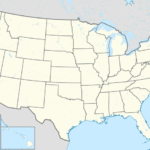Cannabis – Tax Guide For Cannabis: What You Need To Know And How It Will Affect California

Lessons from California, Part 2: Licensing and Compliance Issues
February 18, 2018
Lessons from California, Part 3: Growing and Supply Challenges
February 25, 2018By Eddie Delgado, CMI & Hannah Kim, CPA
Besides 29 states and the District of Columbia that have legalized marijuana for medical use, there are currently nine states that have also legalized marijuana for recreational purposes. Nearly every poll shows most Americans approve of the legalization of marijuana and governors are becoming dependent on the tax revenue to balance the budget and provide more state services. The question then becomes how will the largest state in the U.S. in terms of population tax marijuana now that it has been legalized for recreational purposes?
As it is well known, California has the highest top tier income tax and the highest state sales tax in the nation. While its top rate income tax is paid by only a fraction of households in the state, everyone who lives in or visits California pays the highest-in-the-nation sales tax rate of 7.25 percent. As California recently legalized recreational marijuana from January 1, 2018, it is in the public interest if it will also be a lead in the highest cannabis tax in the nation. Although certain sales of cannabis for medical use are exempt from sales and use tax effective November 9, 2016 in California, legalization of recreational marijuana not only makes a major milestone for the state’s cannabis industry, but an immense revenue stream for its taxing authorities.
In a Fitch Ratings report on California marijuana taxes, California taxes on marijuana can reach as high as 45% effective tax rate. Only Washington with a higher tax rate of 50% among the eight states where recreational marijuana is legal.
(This article will provide general information relating to various taxes on Cannabis that are administered by the California Department of Tax and Fee Administration (CDTFA) (formerly BOE), Franchise Tax Board (FTB), and the Employment Development Department (EDD) which may affect cannabis businesses, allowing one-eighth of the entire population of the United States to have 100 percent legal cannabis.)
SALES & USE TAX
All retail sales of non-medical cannabis and cannabis products are subject to sales and use tax ranging from 7.5% to 10%. Sale of cannabis for medical use to a purchaser with Medical Marijuana Identification Card issued by the California Department of Public Health is exempt from sales and use tax.
Registration Requirement: All retailers, cultivators, manufacturers, and distributors of cannabis must register with the CDTFA for a seller’s permit to report and pay any sales and use tax.
EXCISE AND CULTIVATION TAX
Beginning January 1, 2018, excise tax is imposed upon purchasers of cannabis and cannabis products and a cultivation tax is imposed on all harvested cannabis. Any person who fails to pay either tax is subject to penalty of at least 50%.
Excise Tax: Purchasers of all cannabis and cannabis products, both medical and non-medical use, are subject to cannabis excise tax at a rate of 15 percent of average retail market price. Retailers will collect the cannabis excise tax from the purchasers and pay the tax to the distributors who are responsible to report and pay the cannabis excise tax to the CDTFA. Excise tax is included in the gross receipts from the sale of cannabis and cannabis products.
Average Market Price Determination: The average market price is determined in two ways:
- For arm’s length transaction, the average market price is the wholesale cost plus a mark-up predetermined by the CDTFA. The current mark-up rate is 60 percent for all cannabis and cannabis products and is determined every six months.
- For non-arm’s length transaction, the average market price is the cannabis retailer’s gross receipts from the retail sale of the cannabis or cannabis products.
Cultivation Tax: All harvested cannabis that enters the commercial market is subject to cultivation tax. The rate of the cultivation tax is:
- $1.29 per ounce of fresh cannabis plant,
- $2.75 per dry-weight ounce of cannabis leaves, and
- $9.25 per dry-weight ounce of cannabis flowers.
Cultivators are responsible for paying the cultivation tax to the distributor or to the manufacturer for the first transfer of sale of unprocessed cannabis. The distributor reports and remits the cultivation tax collected from cultivators or manufacturers to the CDTFA.
Registration Requirement: Distributors who are responsible to report and remit the cultivation and cannabis excise tax to the CDTFA are required to register with the CDTFA for a cannabis tax permit.
INCOME TAX
The FTB administers California Income and Franchise Taxes. Cannabis businesses are not eligible for income and franchise tax exemption. Medicinal cannabis businesses may operate as a nonprofit cooperative or collective under current law but do not meet the requirements for income tax exemption described in Internal Revenue Code Section 501(c) or California Revenue and Taxation Code (R&TC) Section 23701. In addition, there may be different requirements and qualifications for deductions, credits, payments and record keeping methods.
Expenses and Deductions: Cannabis is a Schedule I Controlled substance and trafficking marijuana is illegal under Federal Law even though it is legal under California law. IRC 280E disallows all IRC § 162 deductions for all types of businesses engaged in cannabis-related activities, except cost of goods sold. Generally, under California’s Personal Income Tax Law (PITL), R&TC Section 17201(c), the state follows federal treatment that disallows deductions to any taxpayer on gross income from illegal activities. However, the conforming provision under California’s PITL has no similar conforming provision under the corporate tax code, Part 11 of the California Revenue and Taxation Code. Therefore, absent any final determination that the corporation is participating in drug trafficking, a corporation will be allowed full deduction of business expenses and cost of goods sold.
Credits: Cannabis business may receive state business tax credits if it meets the specific requirements for the particular credit.
PAYROLL TAXES
Just like any other businesses, cannabis-related businesses are required to register as an employer, within 15 days of employment, with the EDD when you employ one or more employees and pay wages in excess of $100 in a calendar quarter. Cannabis businesses include, but are not limited to, distributors, transporters, and dispensaries and would include employees, such as, managers, plant caretakers, budtenders, security guards, salespersons, and delivery persons.
SUMMARY
Legalization of recreational marijuana may seem like a win-win situation for both marijuana smokers and the government agencies in California. However, Colorado, Oregon, and Washington have lowered their tax rates of cannabis to try to minimize their black markets. The legal industry may not be as prosperous if they do not come up with a change in taxing cannabis or else a substantial number of recreational users will revert to the black market.




